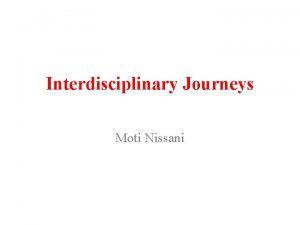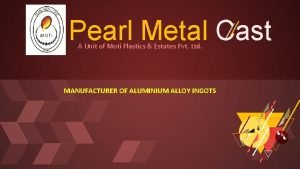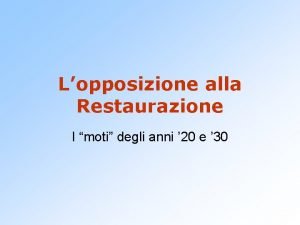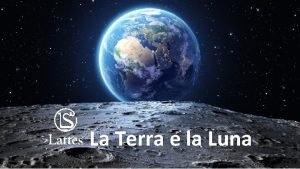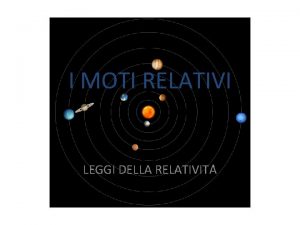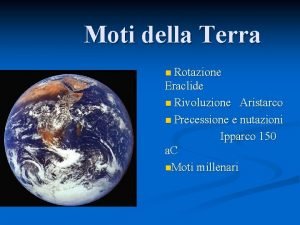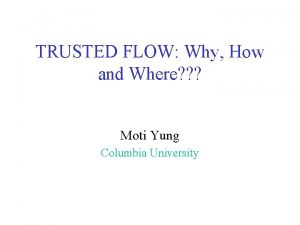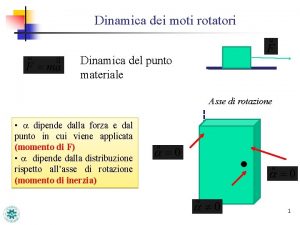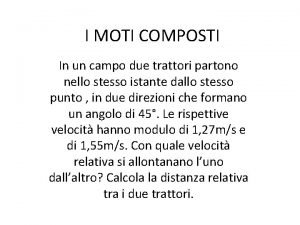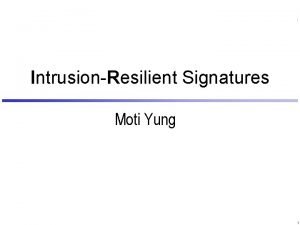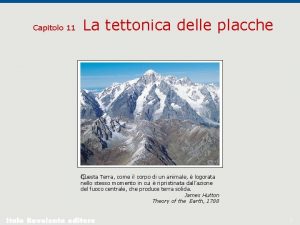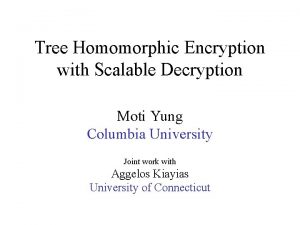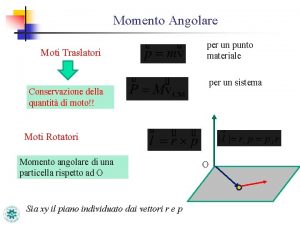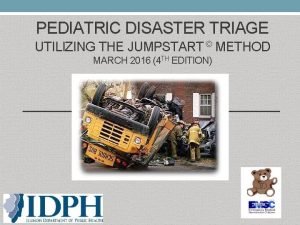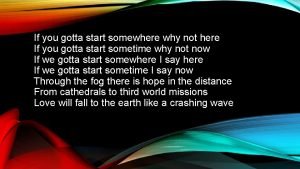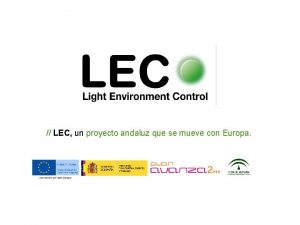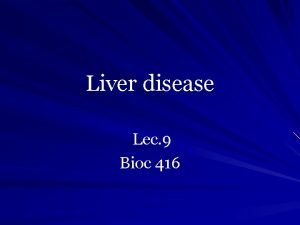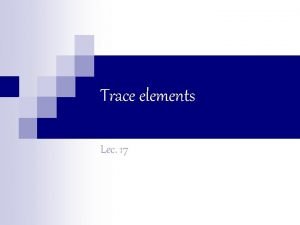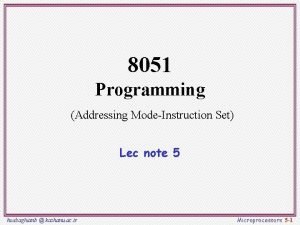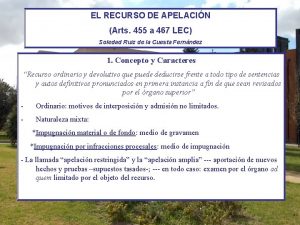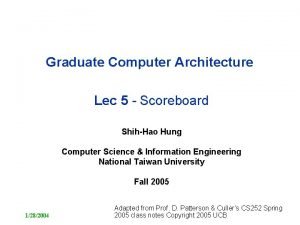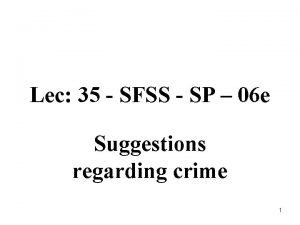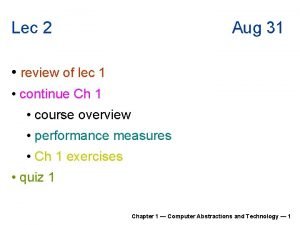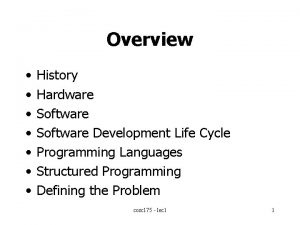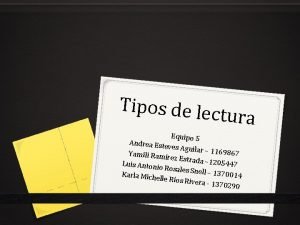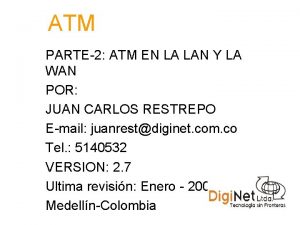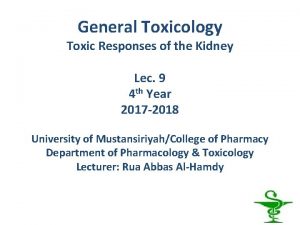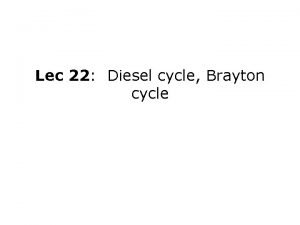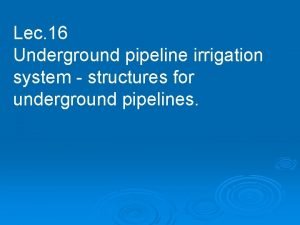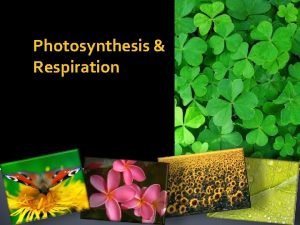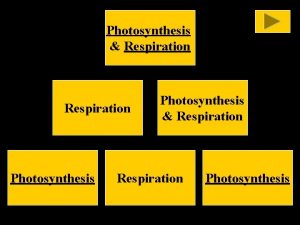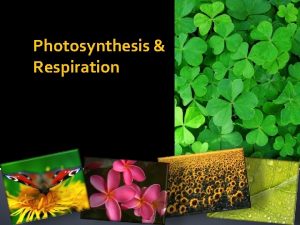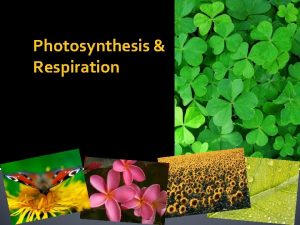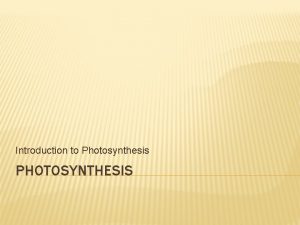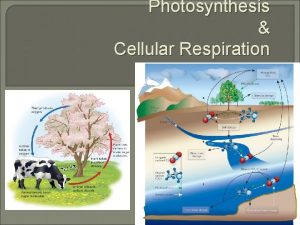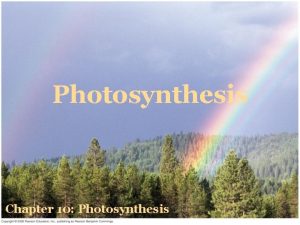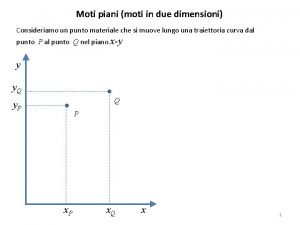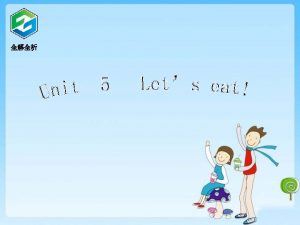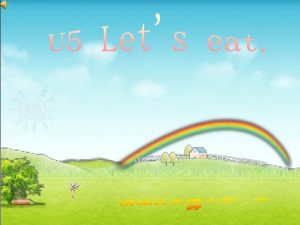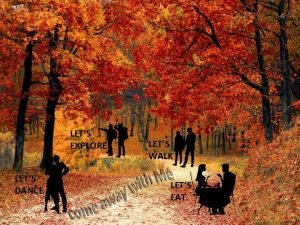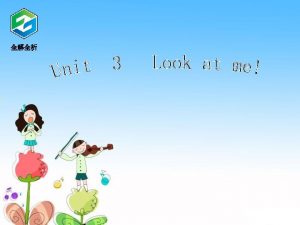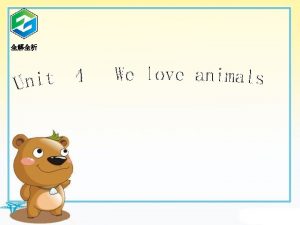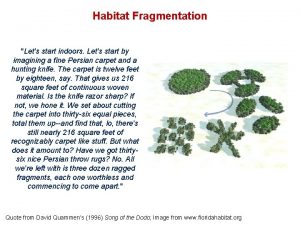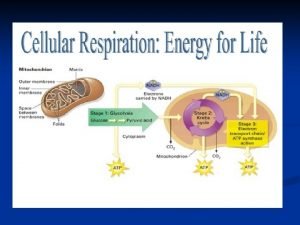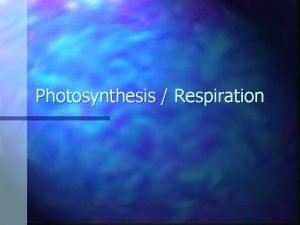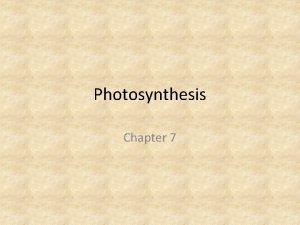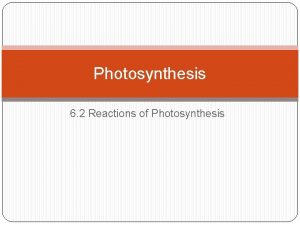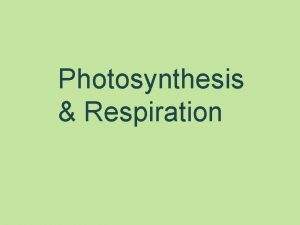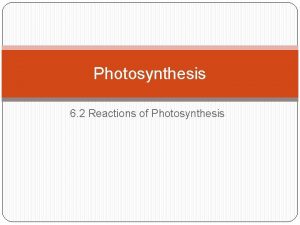Photosynthesis Moti Nissani Lec 3 Lets start with





































- Slides: 37

Photosynthesis (Moti Nissani, Lec. 3) Let’s start with a thought experiment: There but for plants and some photosynthesizing bacteria go we. . .

Why then Must we Have Plants and Other P-S creatures? Here are just 2 reasons (there are others): • Without P-S organisms, we’d, by and by, suffocate • Without P-S organisms, we’d starve So: Animals and plants are interdependent

Photosynthetic creatures Some protists; cyanobacteria plants P-S In blue-green algae (cyanobacteria) no special organelles In protists (e. g. , euglena), plants: P-S occurs in Chloroplasts

Basic ingredients of the P-S Recipe: • C 02 exists in the air, and enters leaves (or other cells) through pores. O 2 exits through same pores • Sunlight • Water—mostly from roots or pores • Cellular Organelles (little organs) in leaf cells where light is captured: Chloroplasts • The molecule that catches light: Chlorophyll • Glucose (a sugar) stays in cell, a source of energy

The P-S Reaction (requires energy, like driving a car. Fuel here=light)

Pla nts An im als 2 2 Respiration +H 20 Cycles of P-S / CO O 2 +G luc os e Endless Cycling (one organism’s waste is another’s sustenance)

REVIEW QUESTION 1. Could you exist if someone said: 2. “Let there be no photosynthesis”? Answer: No. Even if you were a traditional Inuit (Eskimo), and ate mostly meat, the animals you’d eat depend on P-S

How Science Works? Theodor Wilhelm Engelmann (18431909)

Engelmann made quite a few discoveries, but only P-S concerns us here. His question: What Colors of Light Drive P-S? (EB, p. 108)

Background fact: When you pass white light through a prism, you get this outcome

So: Engelmann knew: • White sunlight plays a key role in P-S • White light is a composite of many colors. This raised an interesting question (EB, p. 108): WHICH LIGHT COLORS ARE THE MOST EFFECTIVE FOR PHOTOSYNTHESIS?

Here I won’t capture the experiment the way it actually unfolded. Instead, I shall focus on the logic of Engelmann’s experiment. If you want to know more, consult our class website for a historical link

Engelmann took a slide containing oxygenbreathing bacteria from the river Rhine. He observed them, and they were all over place, randomly scattered about. Now he turned off the light source and dropped microscopic green algae into the drop—and still nothing happened.

Next he shone light on the algae, and the oxygen-breathing bacteria moved towards and clustered around the green algae. (You’d do the same thing, if I locked the doors to this hall, flooded the room with nitrogen, and placed oxygen tanks along the walls!)

So, by now, Engelmann knew that: These bacteria move towards, and cluster about, the little green algae, when white light was shining on the algae

Recall now that white light in reality is a rainbow of colors that appears to us white. Will the different colors have different effects on the algae?

Engelmann saw much more clustering near the algae in blue and red-lit areas, and much less in green-lit areas BLUE LIGHT: Many bacterial Clusters or RED LIGHT: Many bacterial Clusters GREEN LIGHT: Few bacterial Clusters was used

Engelmann’s results

Knowing That the algae gave off oxygen during P-S, Engelmann concluded that P-S preferentially occurs in blue and red light

Now, let’s explore a few implications of Engelmann's research:

Implication I. Engelmann shows us that science is not half as complex as they make it appear in high school: We are all scientists. The only things we might be lacking are self-confidence and curiosity. The only things we might have an oversupply of are TV and materialism.

Implication II. Investigations like Engelmann's satisfy our curiosity and help us understand the world around us a bit better

Implication III. Thinking Cap Question Research like Engelmann’s often has some practical applications. Can you think of one? Hint: If you had to grow plants in a cave, and you had to choose between a green light growing lamp and a red one, which kind of lamp would you use? Answer: Red or blue light

Implication IV. Nature of Science What was Engelmann’s hypothesis (educated guess)? Answer: P-S might be more efficient with some colors than with others

The Environmental Impact of P-S (EB, pp 114 -6) Let’s start with this Q: What’s going on in a greenhouse?

Next Steps • Specify the actions required of your audience

Thinking Cap Q: What might happen upon removal of all the C 02 from the atmosphere? One Effect: N 0 P-S: No plants. Also, no food, no oxygen, extinction of all animals. Another effect: Much, much colder. Think of the moon—Why is it so much colder than earth?

S C 02 is a wonderful thing. Methane, another greenhouse gas, is also nice —it’s the natural gas we use in our furnaces. Could there be TOO MUCH of such good things?

The answer is yes, and the fancy name for this is climate change, or global warming, or the greenhouse effect Here we only need to mention:

By cutting down forests, polluting oceans, we aggravate the problem. Can you see why? Answer: Trees take up carbon dioxide and convert it to plant tissue, mostly wood. You cut down a forest, they stop converting this gas. You burn a forest, they give you back. . . carbon dioxide.

We increase CO 2 also by. . . Answer: Burning fossil fuels: coal, oil, gas

And the facts are? • • CO 2 up by 35%, worldwide Icecaps melting Hotter overall More episodes of extreme weather We are, in other words, certifiably insane. “History, ” Kurt Vonnegut said, “read it and weep. ”

Our last, brief item, concerns the ability of life itself to transform this planet (EB, p. 116). One example of this is the ongoing destruction of planet earth by a species that hands over power to the likes of Hitler, Stalin, Olmert, Hussein, Rockefeller, Cheney, J. P. Morgan, or Romney. Thus, e. g. , C 02 concentrations in the planet’s atmosphere— 35% higher!

A second example of life profoundly transforming earth involves the evolutionary impact of blue-green algae (cyanobacteria)

These tiny, beautiful, sea dwellers have been around for a long time, about 3 X 109 years. How do you say 3 X 109 in plain English?

Answer: 3 X 10 X 10 X 10= 3 X 1, 000, 000= three billion

These little ocean dwellers, these blue green algae, produce oxygen. Oxygen is chemically active, and some life forms simply couldn’t take it. So some went underground, some became extinct. Others adjusted. Take-Home Q: Has humanity, now, similar—but incredibly faster—effect on the biosphere?
 Politicians discussing global warming
Politicians discussing global warming Moti rotatori
Moti rotatori Steel forge unit of moti plastic
Steel forge unit of moti plastic Moti anni 20
Moti anni 20 Luna terra 152m
Luna terra 152m Moti relativi
Moti relativi Cosa sono i moti millenari
Cosa sono i moti millenari Moti yung
Moti yung Momenti di inerzia tabella
Momenti di inerzia tabella Moti composti
Moti composti Moti yung
Moti yung I moti del 1830
I moti del 1830 Moti millenari zanichelli
Moti millenari zanichelli I moti del 1830-31
I moti del 1830-31 I moti convettivi del mantello
I moti convettivi del mantello Moti tree
Moti tree Moti traslatori
Moti traslatori Triage disaster
Triage disaster Site:slidetodoc.com
Site:slidetodoc.com Lec ditto
Lec ditto 252 lec
252 lec Lec barbate
Lec barbate 416 lec
416 lec Elements lec
Elements lec Lec anatomia
Lec anatomia Lec@b@ret
Lec@b@ret Apelacin
Apelacin Lec scoreboard
Lec scoreboard Lec hardver
Lec hardver Lec
Lec August lec 250
August lec 250 Lec scoreboard
Lec scoreboard Lec hardver
Lec hardver Tura analítica
Tura analítica Componentes del lec
Componentes del lec Lec renal
Lec renal Diesel lec
Diesel lec Lec 16
Lec 16
